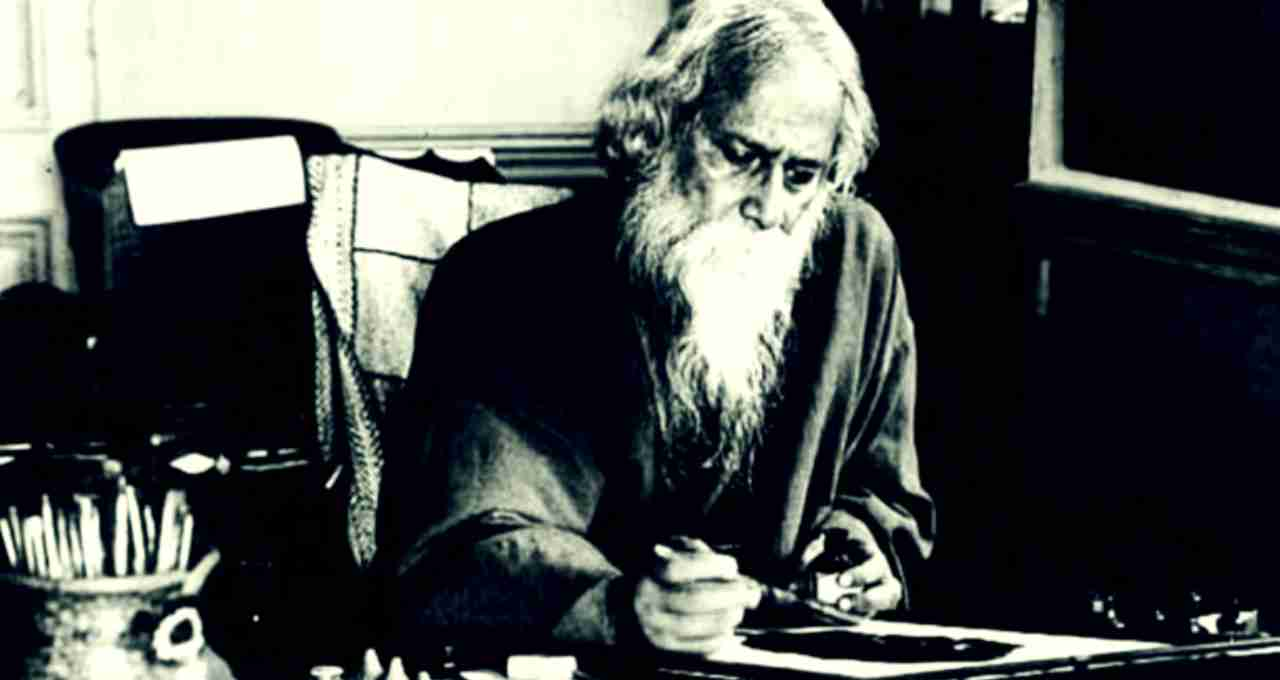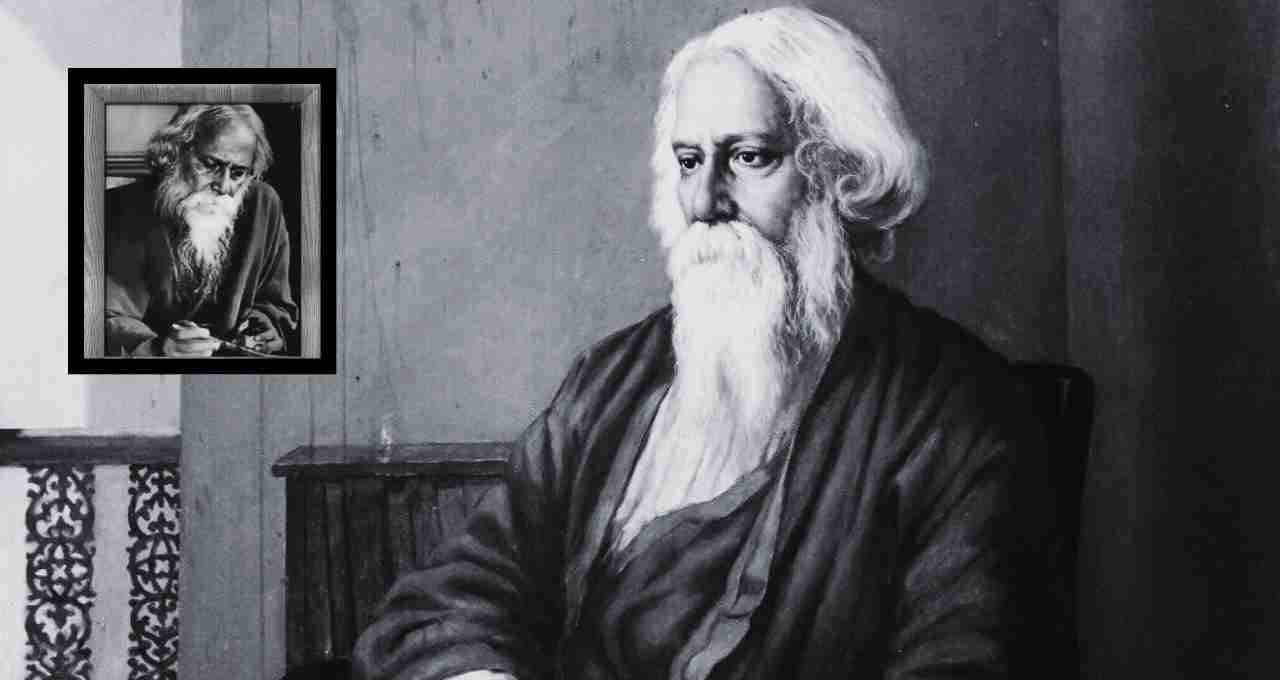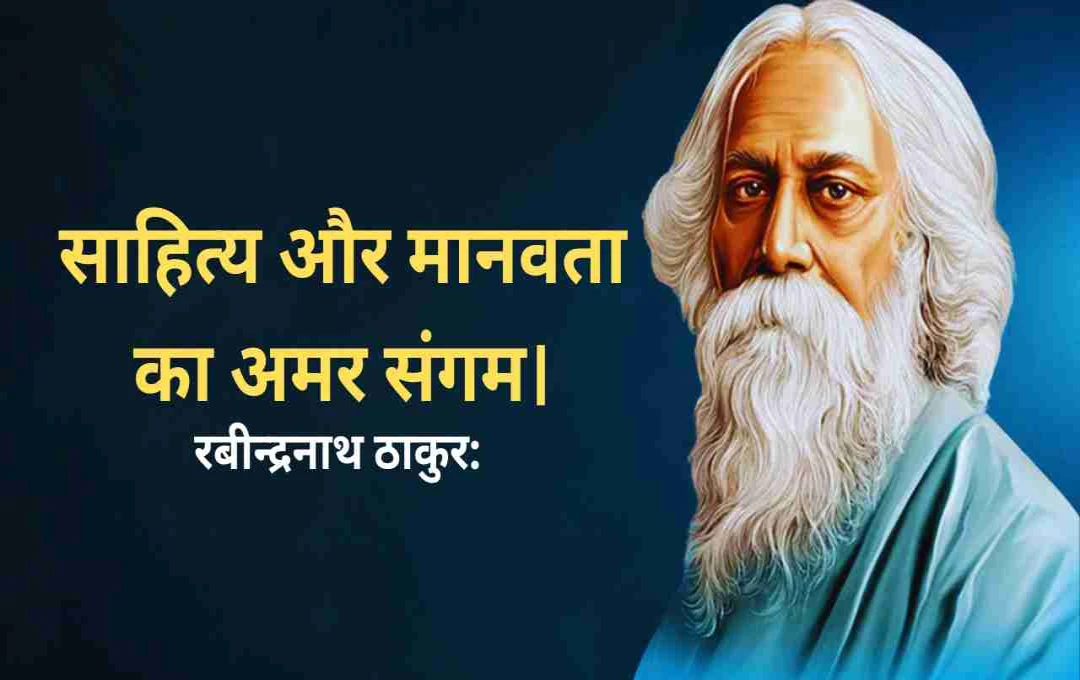Rabindranath Tagore, affectionately known as "Gurudev," is an immortal and invaluable figure not only in Indian but also in world literary history. Born on May 7, 1861, in Kolkata, this great poet, philosopher, musician, and Nobel laureate was a pioneer of a new revolution in Indian cultural consciousness. His works gave a new direction to the Bengal Renaissance and brought a wave of literary, cultural, and social change across India.
Early Life and Education
Rabindranath Tagore's family was one of the prominent pillars of the Bengal Renaissance. His father, Devendranath Tagore, was a scholar and religious thinker, while his elder brothers were also proficient in literature, philosophy, and music. In such an environment, Rabindranath's childhood was deeply connected with knowledge, art, and spirituality. His early education was at St. Xavier's School, and later he went to England where he began studying law but returned to India without a degree for various reasons.
His childhood was extraordinary, as he had little interest in traditional educational methods. He preferred spending time in nature and received physical and mental training under the guidance of his elder brother. For him, education meant not just bookish knowledge, but fostering a curiosity about life.
Literary Journey and Works
Rabindranath's literary talent shone from childhood. He started writing poetry at the age of eight, and his first short story was published at the age of sixteen. Throughout his life, he made unparalleled contributions to poetry, novels, plays, essays, travelogues, and musical compositions. His most famous work, 'Gitanjali,' received the Nobel Prize in Literature in 1913, the first Nobel Prize in Literature for Asia.

His works are not only a symbol of the richness of Bengali literature but also groundbreaking for Indian and world literature. In novels like 'Chokher Bali,' 'Gora,' and 'Ghare Baire,' he deeply explored middle-class society. His poems reflect the diverse hues of nature, humanity, and spirituality. 'Jana Gana Mana,' India's national anthem, and 'Amar Sonar Bangla,' Bangladesh's national anthem, are both his creations, testament to his literary greatness.
Music and Rabindra Sangeet
Rabindranath Tagore composed approximately 2,230 songs, known as 'Rabindra Sangeet.' These songs are an invaluable part of Bengali culture. His songs clearly reflect the Dhrupad style of Indian classical music. Rabindra Sangeet beautifully and simply weaves together nature, love, separation, devotion, and human emotions. His songs exhibit a unique blend of music and words, where song and poetry complement each other. This is why Rabindra Sangeet continues to resonate deeply in people's hearts and has become an integral part of Bengali society's cultural life.
Gurudev's musical compositions are not merely beautiful sounds; they encapsulate the depth of human emotions and life experiences. He depicted the beauty of nature with great affection in his songs—the flowing waves of a river, the rustling of the wind, or the fragrance of flowers. Listening to Rabindra Sangeet instills a new energy and peace within everyone. This music has transcended Bengal's borders, finding a special place among people across India and the world.
Philosophy of Life and Humanistic Ideals
Rabindranath Tagore's philosophy had a deep connection between life, humanity, and God. He believed in a permanent and b relationship between man and God, unaffected by time and circumstance. In his later years, he also took up painting, reflecting weariness of life, illusions, and various questions. His works clearly demonstrate his constant embrace of humanity and spirituality.
His views on nationalism differed somewhat from Mahatma Gandhi's. While Gandhi considered patriotism the greatest religion, Rabindranath Tagore placed humanity above the nation. Yet, both great personalities respected each other. Gandhiji helped Shantiniketan, while Tagore sometimes commented on Gandhiji's nationalism in a humorous way. This shows that despite their differing views, they understood and respected each other.
Rabindranath Tagore's Social and Cultural Contributions

Rabindranath Tagore profoundly impacted education and social reform alongside literature and music. His establishment, Shantiniketan, was a place where modern education was combined with Indian cultural and spiritual values. His aim was not just to impart knowledge but also to focus on character building and the upliftment of the students' souls. He considered education a means of holistic development, enabling individuals to become responsible and sensitive towards society.
Tagore's works continue to strengthen the social and cultural values of Indian society. His thoughts inspire us towards morality, tolerance, and human harmony. His writings impart the highest principles of life, which continue to help improve our society.
Honors and Legacy
Receiving the Nobel Prize in 1913 for 'Gitanjali,' he paved the way for glory for India and Asia. Furthermore, he was knighted by King George V in 1915, a title he returned in 1919 in protest against the Jallianwala Bagh massacre. This act demonstrates his unwavering commitment to patriotism and justice.
He died on August 7, 1941, but his literature, music, philosophy, and thoughts remain vibrant. Shantiniketan, Visva-Bharati University, and his works are integral parts of Indian cultural consciousness. His contributions are remembered worldwide on his birthday.
Rabindranath Tagore was not merely a poet or writer but a philosopher, teacher, musician, and humanist. In his life's journey, he not only enriched literature and music but also paved the way for the Indian cultural renaissance. His creations connect us with humanity, nature, and God. He will remain a source of inspiration for literature lovers in India and the world for generations to come.







